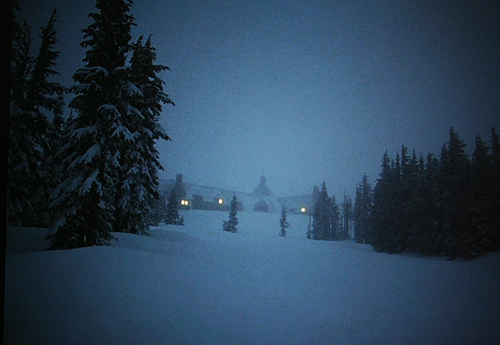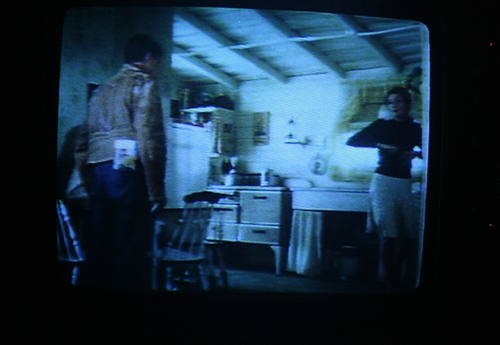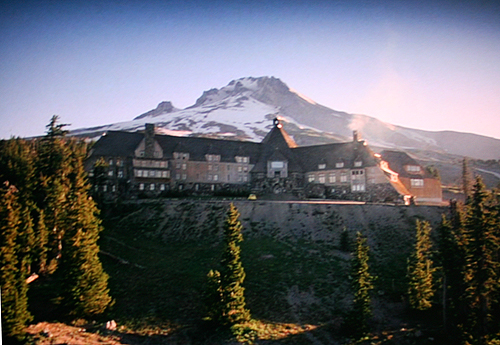True Grit


Longtime readers of this journal will not be surprised to learn that I enjoyed the new Coen Bros movie True Grit. I’ve seen the movie twice now and find it superlative. In some ways it is their most straightforward, conventional script — easily-identified protagonist, easily-identified act breaks, lovingly crafted script work. The acting, while excellent, does not have the eccentricity and oddness of past movies, and the direction is similarly classical. And yet, like all Coen movies, it hangs in the mind in a way other movies don’t.
Analysis will follow soon, so please hie thee to your nearest theater at your earliest convenience.
The Shining part 7: 4pm
Jack is down for the count, locked in a pantry by his wife, who, moments earlier, was incapable of the slightest act of self-preservation. This is, surely, the protagonist’s low point: all hope is lost, there’s no way he’s ever going to get out of this pantry.
Or is there?
The Shining part 6: 8am
For 30 years, the act structure of The Shining has eluded me — there are no clear, classic act breaks, there is no classic end-of-Act-II-low-point, there are no irreversible climaxes in obvious places, etc. This seeming lack of structure all stems from Kubrick’s choice of giving the movie an invisible protagonist: it’s hard to tell how the protagonist’s journey is going if you can’t see the protagonist.
The Shining Part 5: Monday, Wednesday
Monday morning, Wendy and Danny watch a movie on TV: Summer of ’42. Summer of ’42, for those unfamiliar with it, is a 1971 coming-of-age movie about a teenage kid who has an affair with an older woman whose husband is away at war. Some people read a lot of significance into the use of this movie in The Shining (some people read a lot of significance into absolutely everything in The Shining) — dwelling on things like Danny wearing a “42” on his shirt, or the fact that 42 is multiple of 12, as is 24, and there are 24 frames per second of film (I wish I was kidding) — but I see it more simply, and more dramatically. Summer of ’42 is a movie about a woman falling in love with a younger man while her husband is away. Now why would Wendy find that movie interesting at this point in her life? Obviously, because her husband has left her, even though they’re living in the same building and sleeping in the same bed, and all she has left is Danny. This is not to say that Wendy has carnal designs on Danny, only that Wendy’s whole life has been built around the romance of marriage and motherhood, and now the marriage part of that seems to be dead now.
(On the the Kubrick-analysis front, honestly, some people get excited about the weirdest things in The Shining and in Kubrick in general . He seems to bring it out in people. I’ve read tons of analysis of Kubrick, analyzing everything from prop placement to frame-counting, everything possible to examine, except the actual drama that’s taking place in the story. Kubrick’s stance invites some of this: his camera always seems to be at a distant remove from his actors, as though looking at them through a telescope, or perhaps a microscope: “Huh, look at that. They find a monolith and then build a spaceship to go find another monolith. And then the computer murders everyone. Interesting.” When the director has a God-like stance toward his characters, and is interested in processes on top of that, people seem to want to find patterns whether or not they’re placed intentionally, and, even if they were placed intentionally, if their intent has any bearing on the meaning of the movie.)
The Shining part 4: A Month Later, Tuesday, Thursday, Saturday
A MONTH LATER
The Torrances have moved into the Overlook. A month has gone by without anyone getting murdered.
Things seem to be going okay, all things considered. Wendy, who seems to enjoy being a wife and mother, acts like she’s playing house in an enormous home. Like Halloran says, “It’s still ain’t nothing but a kitchen.” Yes, you make your breakfast in the kitchen, then you wheel it on a cart past the Gold Room, into the hotel lobby, through God knows where, into an elevator, down the hall, up the stairs and into your bedroom — just like at home!



